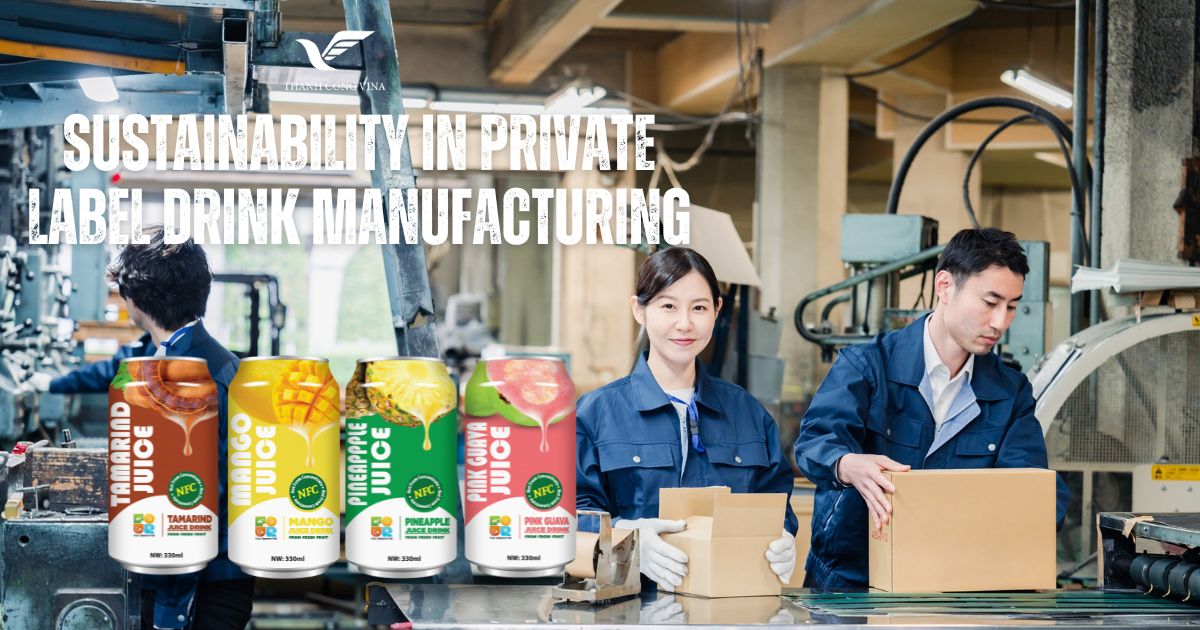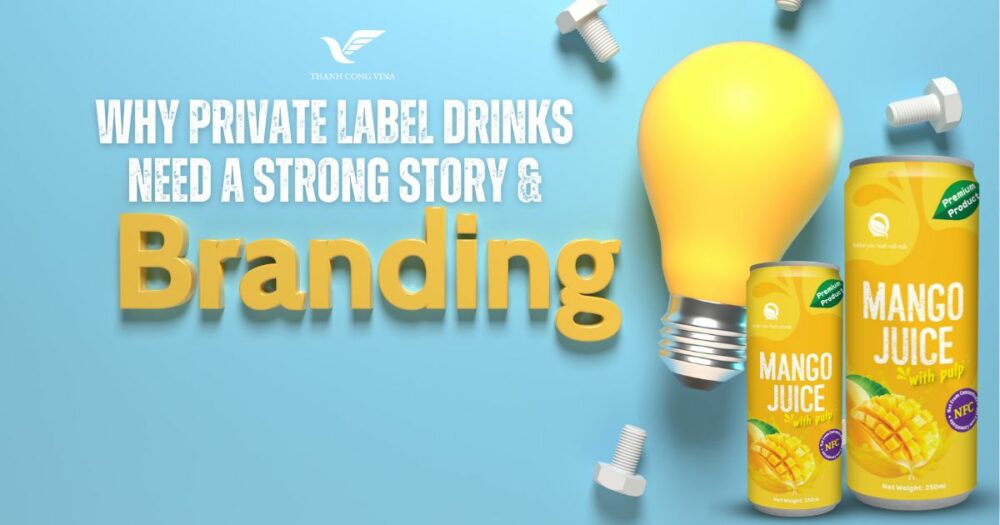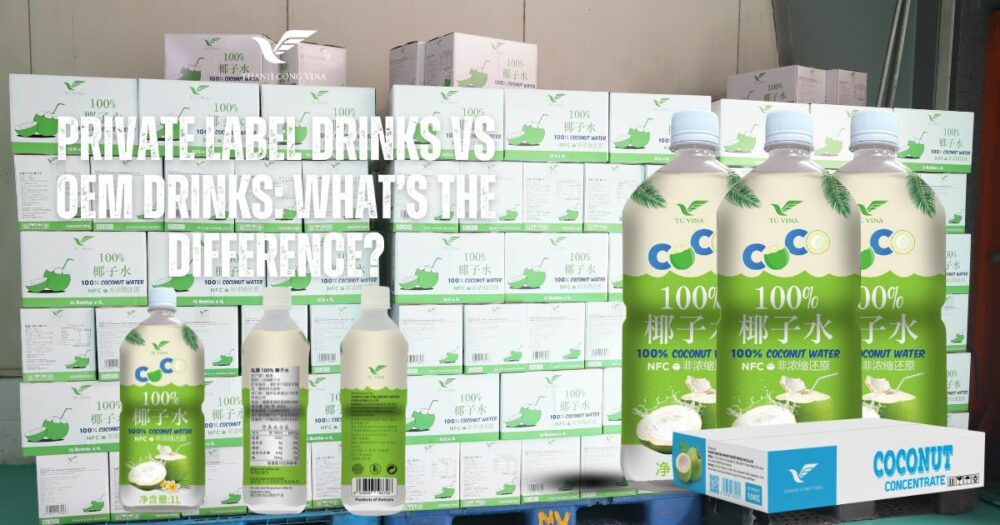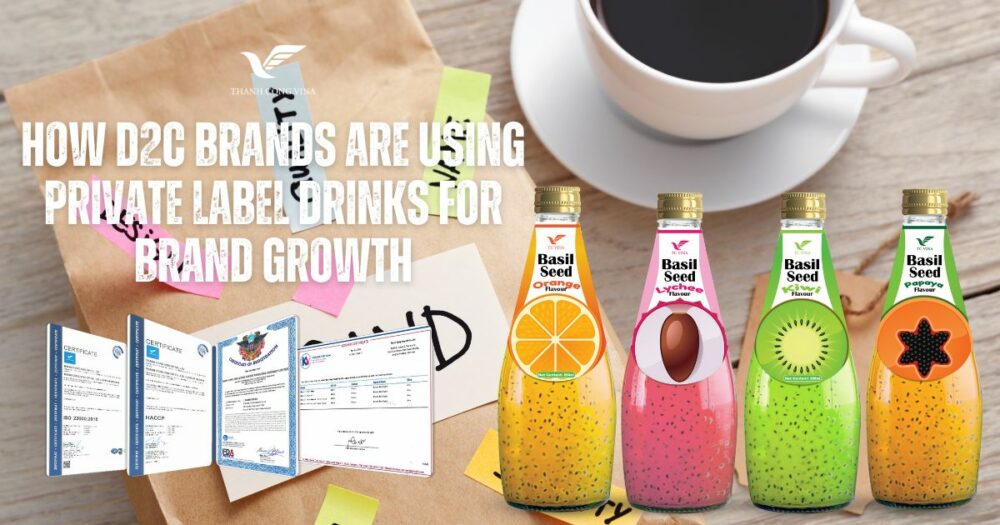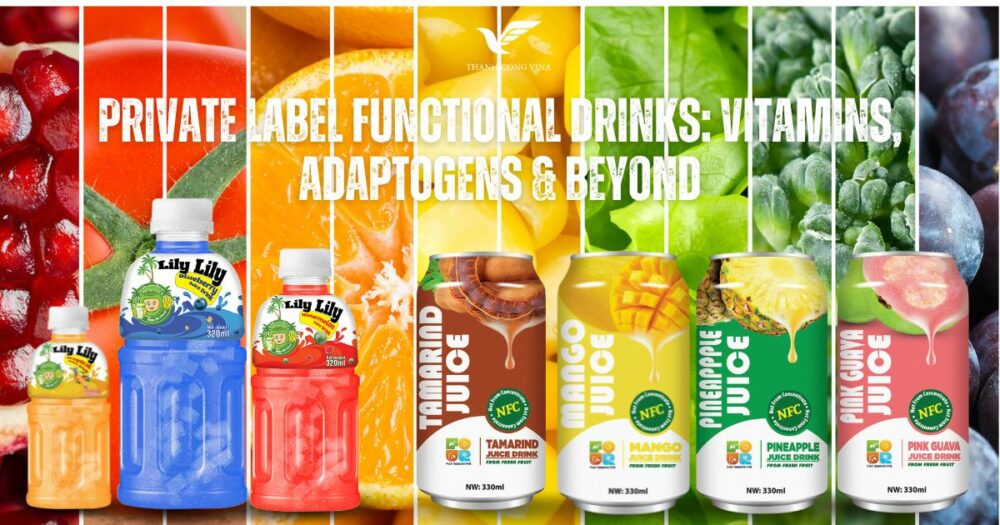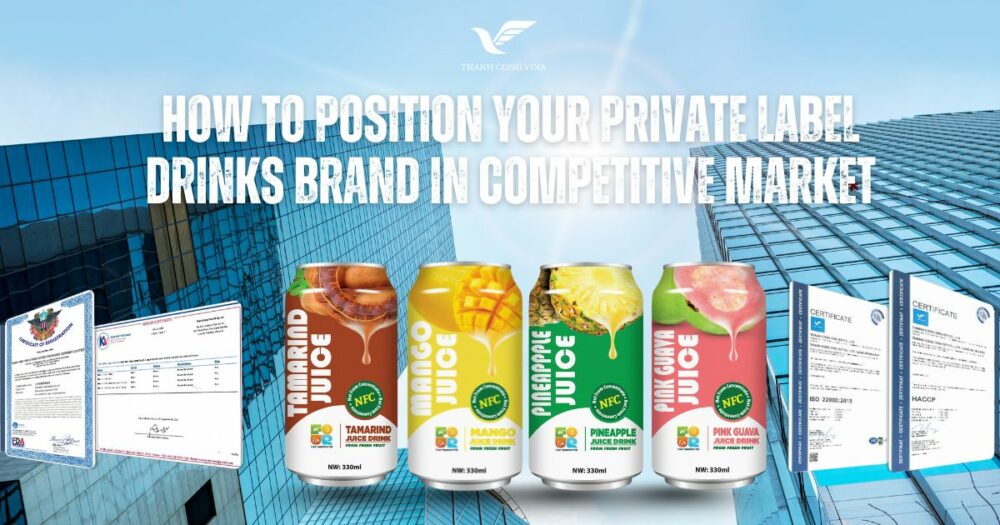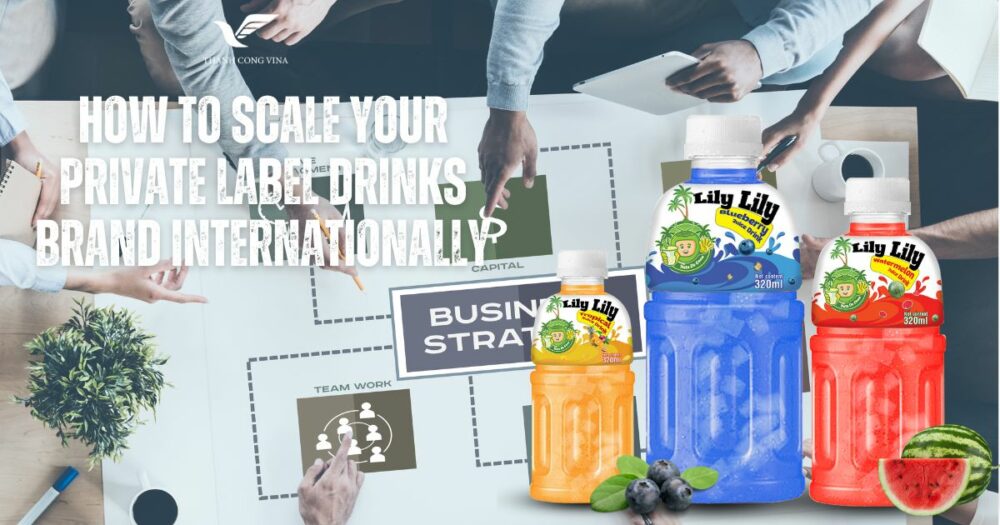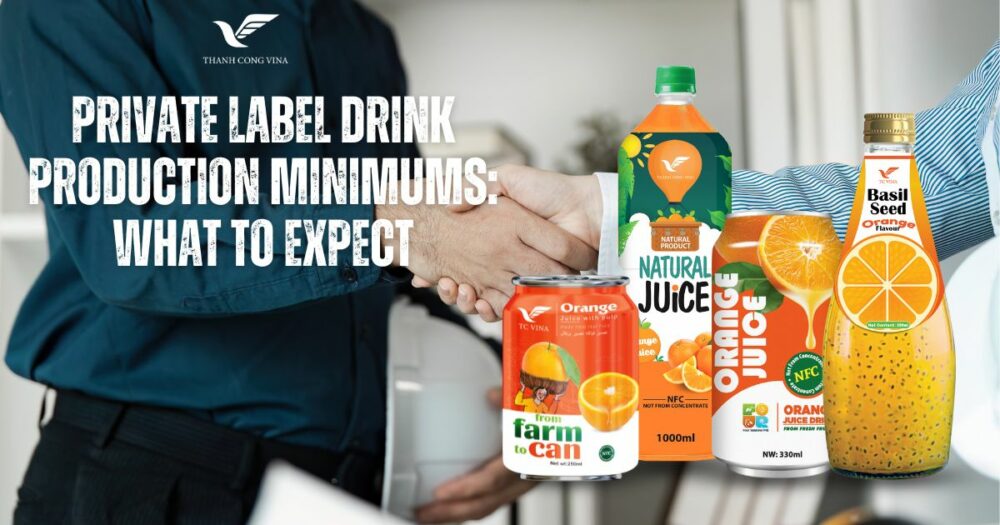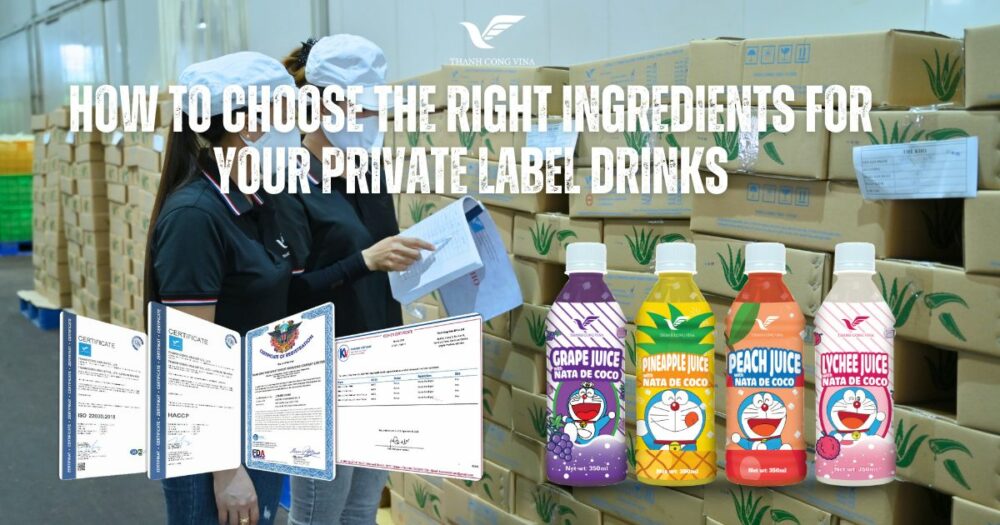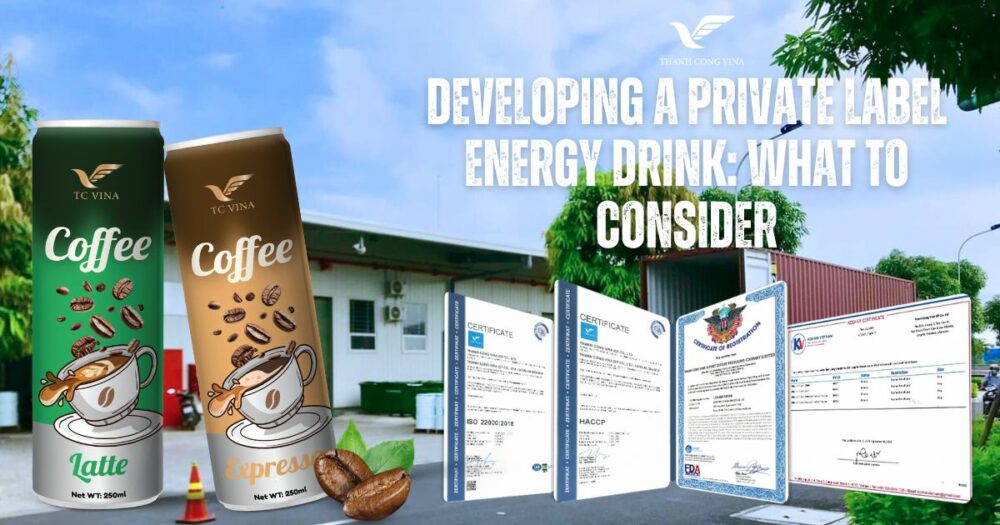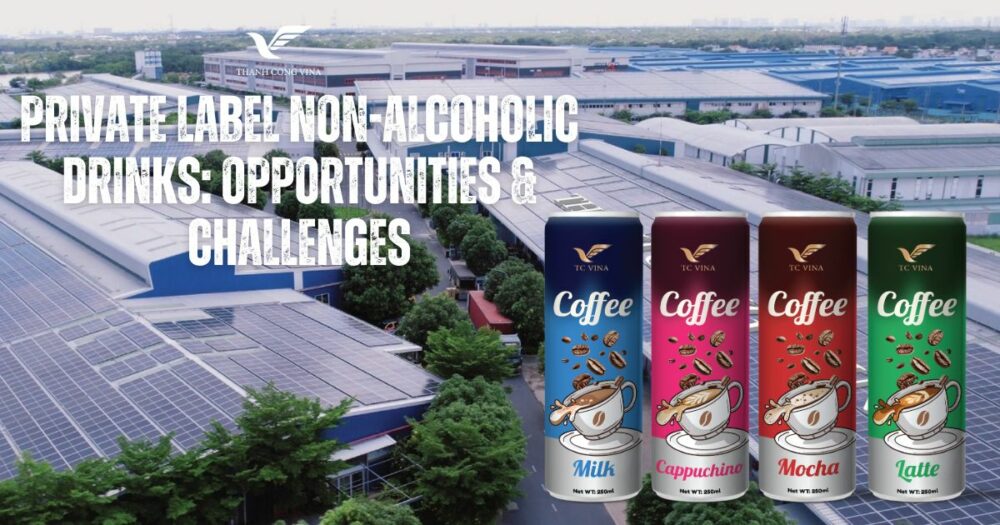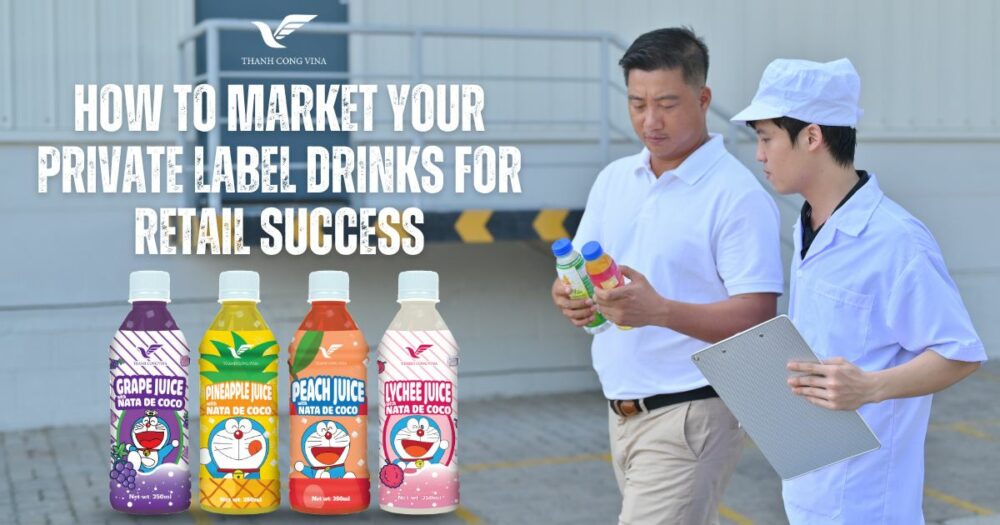Sustainability has become a defining force in the global beverage industry, reshaping how brands design, manufacture, and distribute products. As consumer awareness rises, retailers are increasingly expected to offer environmentally responsible beverage solutions—especially within the growing Private Label Drink category. Today’s buyers prioritize transparency, ethical sourcing, eco-friendly packaging, and carbon-conscious production.
For retailers, integrating sustainability into Private Label Drink manufacturing is no longer optional but a strategic advantage that strengthens brand reputation, drives customer loyalty, and supports long-term profitability. This comprehensive guide explores the essential pillars of sustainability in private label beverage production, examining how responsible sourcing, energy-efficient processing, waste reduction, sustainable packaging, and eco-friendly logistics contribute to both industry growth and environmental stewardship.
1. Understanding Sustainability in the Private Label Drink Sector
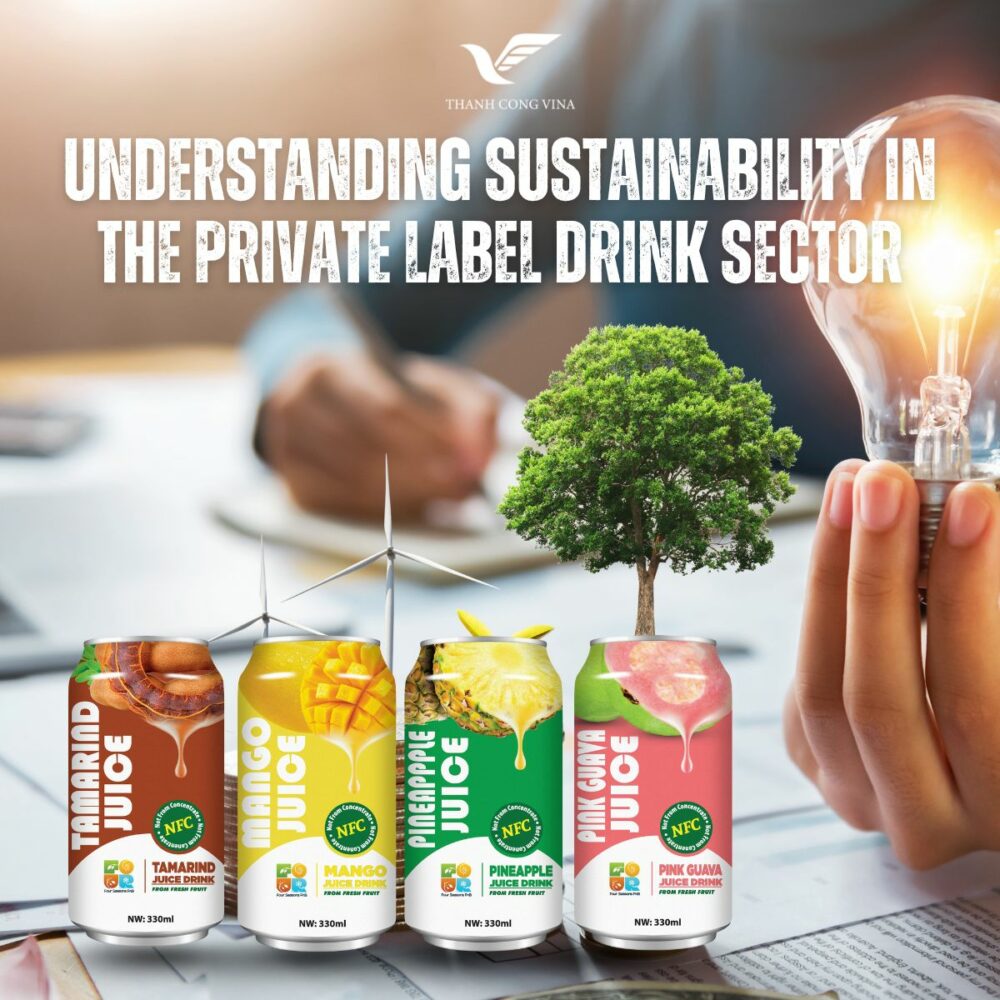
Understanding Sustainability in the Private Label Drink Sector
1.1 Why Sustainability Matters Today
The shift toward sustainable consumer goods is rooted in environmental concerns, changing lifestyle values, and mounting pressure on brands to operate responsibly. Consumers now expect beverage producers, including Private Label Drink manufacturers, to minimize ecological impact. This creates opportunities for retailers to differentiate themselves by offering beverages that align with sustainability standards, from ingredient selection to packaging.
1.2 The Rise of Eco-Conscious Consumers
Modern consumers demand beverages that match their environmental values. Many read labels closely, seeking proof of sustainable sourcing, reduced plastic usage, and clean ingredient lists. Private Label Drink producers who integrate these elements into their production gain faster acceptance and stronger customer loyalty. Retailers who communicate their sustainability efforts clearly can outperform national brands in credibility.
1.3 How Retailers Benefit from Sustainable Practices
Adopting sustainability brings measurable business advantages. Retailers can reduce production costs through waste reduction, appeal to premium segments with eco-friendly products, and enhance long-term brand equity. Private Label Drink lines built on responsible practices gain competitive positioning and resilience in a rapidly evolving beverage market.
2. Sustainable Ingredient Sourcing for Private Label Drinks
2.1 The Importance of Responsible Agriculture
Sourcing ingredients sustainably is the first step toward eco-friendly Private Label Drink manufacturing. This includes supporting farms using reduced pesticides, water-efficient irrigation, and ethical land practices. Sustainable agriculture helps protect ecosystems while improving ingredient quality. Retailers can market their beverages more convincingly when they trace ingredients back to responsible origins.
2.2 Certifications that Strengthen Product Credibility
Certifications such as organic, fair trade, non-GMO, and rainforest-friendly labeling provide consumers with assurance. When applied to Private Label Drink formulas, these certifications build trust and enhance perceived value. Retailers can use these symbols on packaging to signal their commitment to responsible sourcing.
2.3 Supporting Local and Regional Suppliers
Partnering with local or regional ingredient suppliers reduces transportation emissions and contributes to local communities. It also supports fresher, higher-quality raw materials. Many consumers appreciate knowing their beverages are made with locally sourced fruit, botanicals, or natural extracts, increasing product appeal and transparency.
3. Energy-Efficient Production Methods

Energy-Efficient Production Methods
3.1 Reducing Energy Consumption in Manufacturing
Energy optimization plays a significant role in sustainable manufacturing. Beverage factories implementing energy-efficient systems—such as low-energy pasteurization, optimized heating and cooling, or renewable-powered facilities—significantly lower their carbon footprint. Private Label Drink producers who adopt these practices improve both environmental and operational performance.
3.2 Integration of Renewable Energy Sources
Solar, wind, and biomass energy solutions are becoming increasingly popular in modern beverage plants. Incorporating renewable sources not only reduces energy costs but also enhances corporate responsibility and brand positioning. Retailers collaborating with beverage manufacturers using renewable energy can highlight this advantage in their sustainability profile.
3.3 Automation and Smart Manufacturing
Smart factories contribute to sustainability by optimizing resource usage, reducing waste, and improving production precision. AI-powered systems help monitor water consumption, energy load, and raw material efficiency. These advancements ensure that Private Label Drink production aligns with global sustainability expectations and maximizes process efficiency.
4. Waste Reduction and Circular Production Systems
4.1 Minimizing Raw Material Waste
Waste reduction is an essential part of sustainable beverage production. Manufacturers aim to minimize fruit waste, reduce trimming discards, and reprocess byproducts when possible. In Private Label Drink production, responsible material handling can significantly reduce costs and environmental impact.
4.2 Water Management and Treatment Systems
Water is a critical resource in beverage production. Sustainable factories employ systems that recycle process water, purify wastewater, and reduce overall water consumption. Responsible water management not only supports environmental goals but also improves trust with eco-conscious consumers.
4.3 Circular Economy Strategies
Adopting circular production models enables manufacturers to reuse resources and reduce dependence on new materials. For example, fruit peels may be turned into natural fibers or compost, while packaging waste may be repurposed within the supply chain. Circular strategies encourage long-term sustainability and reduce landfill burden.
5. Sustainable Packaging Innovations for Private Label Drinks
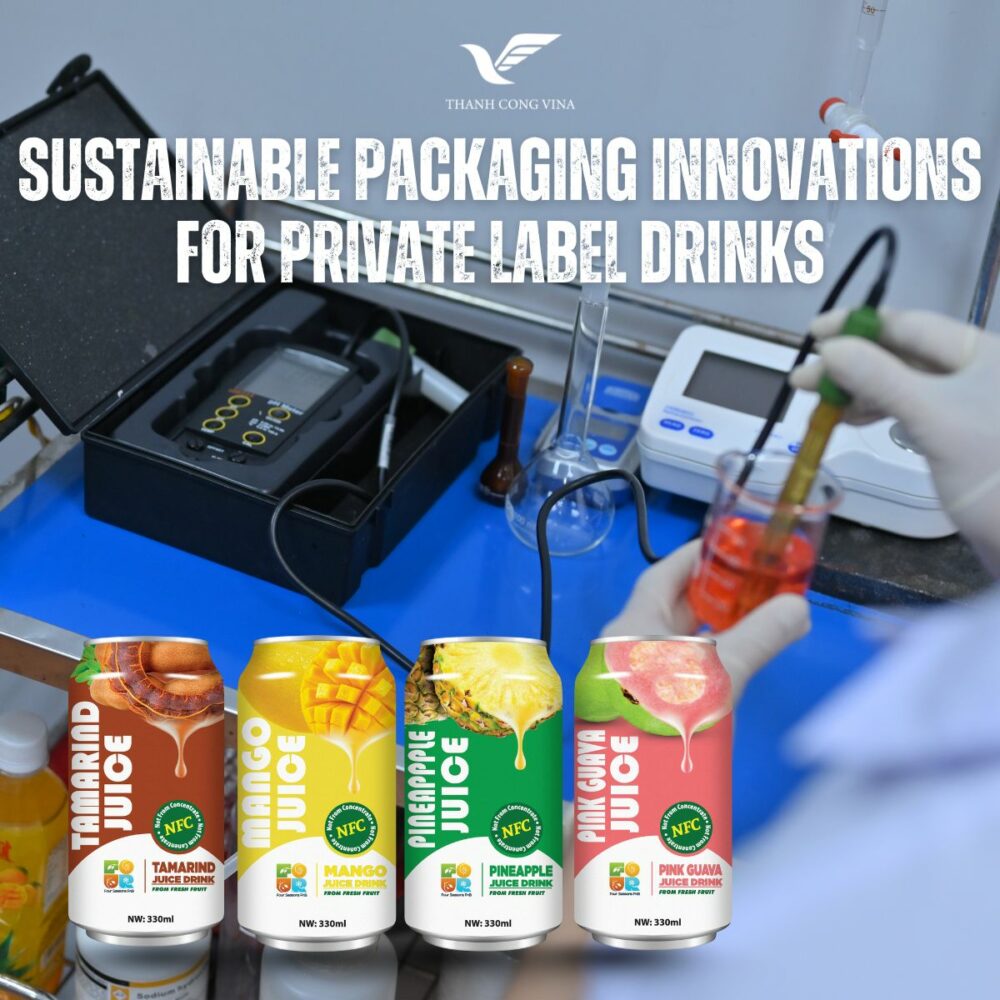
Sustainable Packaging Innovations for Private Label Drinks
5.1 Transitioning to Eco-Friendly Materials
Packaging has a significant impact on environmental footprint. Switching from traditional plastics to biodegradable, recycled, or plant-based materials is becoming increasingly common. PET bottles made from recycled plastic (rPET) significantly reduce carbon emissions and appeal to environmentally conscious customers.
5.2 Lightweighting for Reduced Emissions
Reducing the weight of packaging materials lowers transportation emissions and shipping costs. Lightweight bottles and cans maintain durability while minimizing resource consumption. For Private Label Drink lines, lightweight packaging is a strategic advantage that supports both sustainability and cost efficiency.
5.3 Labeling and Ink Choices for Sustainability
Sustainable labels involve using water-based inks, compostable label materials, and eco-friendly adhesives. These details—though small—contribute to overall sustainability. Retailers can emphasize these choices in marketing campaigns to highlight their responsible production commitments.
6. Sustainable Supply Chain and Distribution Systems
6.1 Optimizing Transportation Routes
Sustainable distribution systems focus on minimizing fuel consumption and reducing emissions. Private Label Drink manufacturers collaborate with logistics partners to optimize delivery schedules, reduce empty-load trips, and consolidate shipments. These efforts lower carbon footprint while improving operational efficiency.
6.2 Eco-Friendly Warehousing Solutions
Green warehouses equipped with LED lighting, renewable energy systems, and efficient refrigeration significantly reduce environmental impact. Retailers can highlight these sustainability measures in their supply chain communication, enhancing overall brand reputation.
6.3 Localized Production for Reduced Emissions
Producing beverages closer to target markets dramatically reduces transportation emissions. Many retailers prefer partnering with local beverage manufacturers for Private Label Drink lines, enabling shorter lead times and more flexible inventory systems.
7. Marketing Sustainability to Consumers
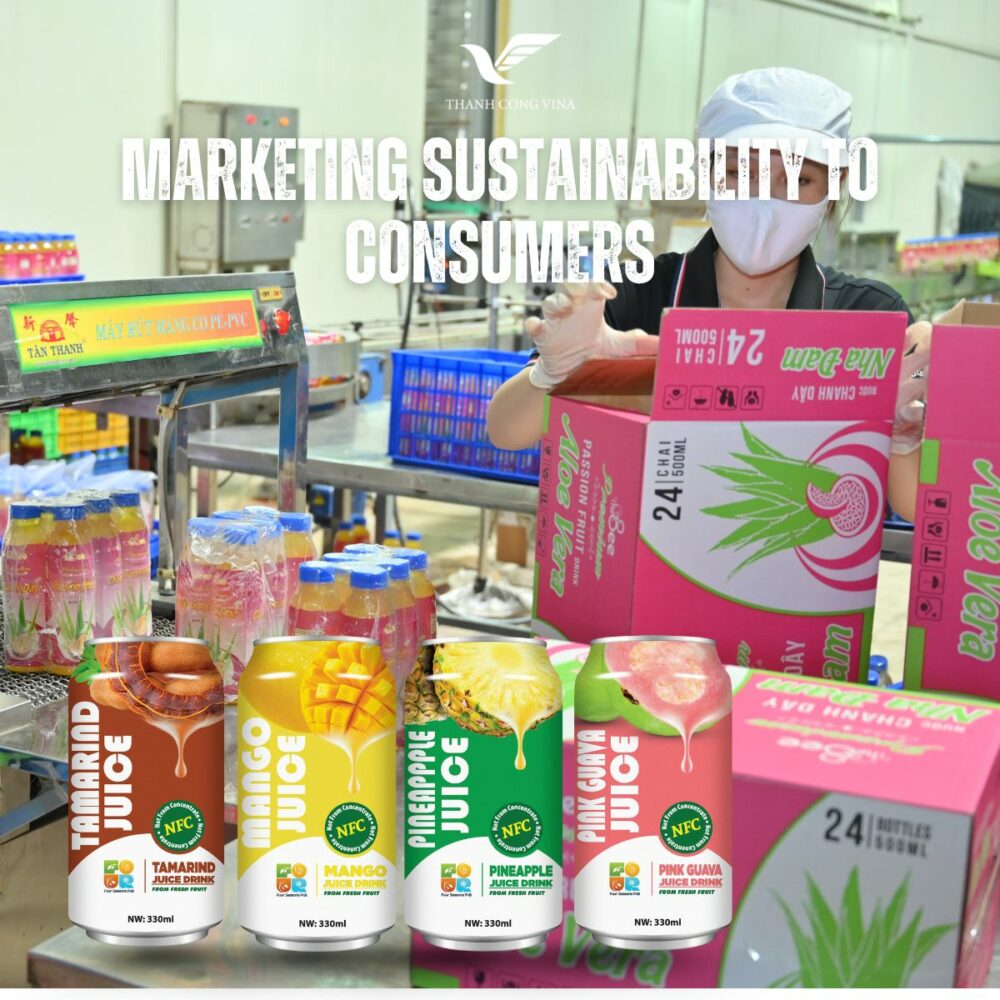
Marketing Sustainability to Consumers
7.1 Transparent and Authentic Communication
Consumers value transparency. Retailers must clearly communicate sustainability practices—from sourcing to packaging—through labels, product pages, and marketing materials. Authentic storytelling increases consumer trust and boosts brand differentiation for Private Label Drink products.
7.2 Highlighting Certifications and Environmental Benefits
Environmental certifications and eco-friendly benefits should be featured prominently on packaging, websites, and promotional content. Consumers actively look for these indicators when comparing beverages in the same category.
7.3 Educating Customers on Responsible Choices
Retailers can implement educational campaigns about recycling, ingredient sourcing, and sustainable packaging. Doing so not only positions the brand as eco-conscious but also empowers buyers to make responsible purchasing decisions.
Conclusion
Sustainability is reshaping the global beverage industry, and brands that prioritize responsible sourcing, energy efficiency, circular production, and eco-friendly packaging gain a strong advantage in the competitive Private Label Drink market. Retailers who embrace sustainable manufacturing not only meet consumer expectations but also build resilient, future-ready beverage portfolios. As demand for eco-conscious drinks grows, sustainability becomes an essential strategy for long-term success.
For retailers seeking a reliable and environmentally responsible manufacturing partner, THANH CONG VINA IMPORT EXPORT PRODUCING CO., LTD provides high-quality production systems and sustainable processes designed for modern beverage demands. With extensive experience supporting global clients, Thanh Cong Vina Beverage empowers brands to create private label beverages that meet the highest ecological and industry standards.

